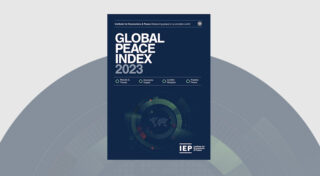Momentum is growing for the social economy and social entrepreneurs globally. The acceptance of the resolution on social economy by the United Nations, EU social economy action plan, the development of the Social Value Act in the UK, and the recent ratification of national strategy for social innovation and public benefit enterprises in Germany, have all placed increasing attention on the social and impact economy and its actors, specifically social entrepreneurs. Simultaneously, government, commissioners and investors have begun placing an ever-growing emphasis on the evidence of impact, measuring social economic output has become increasingly important, and a growing number of social enterprises are being asked to quantify and demonstrate social added-value to investors.
The Social Enterprise World Forum (SEWF23), which took place between October 11-12 in Amsterdam, provided another opportunity to bring together social entrepreneurs, policymakers and purpose-led individuals and place renewed pressure on ways to measure and attribute contributions to social change.
In principle, the social economy has the potential to revolutionise the way in which public and private stakeholders direct social investments and measure systems change and sustainability. However, despite ongoing efforts to develop impact measurement standards for both individual actors and the ecosystem at large, no harmonised and accepted criteria or evaluation framework yet exists.
What is already known, however, is that social entrepreneurs can deeply influence the stability and security of societies. Recent research by the British Council into the global state of social enterprise shows the diversity of improvements social enterprises can make on local communities. From creating local jobs and stimulating the local economy, reducing income inequality and poverty, to protecting the environment and improving access to education and healthcare. By improving the overall coherence of the community, social enterprises have also proven to be more resilient in times of crises. During COVID, for instance, social enterprises were able to retain 41% of all staff in comparison to regular SME’s, 33% of which made staff redundant.
Social entrepreneurship performance and progress is also not unmeasurable. A big push is underway from investors, such as Big Society Capital in the UK, who have developed a framework to measure the impact of its investments across diverse areas. Similarly, the launch of the NatWest SE100 Index and the Social Business Awards is a private initiative which aims to provide a platform for social enterprises to measure and report social impact, ranking the 100 best performing social enterprises in the UK and with it awarding an annual prize. The philanthropic sector has also introduced several tools to boost the performance and impact of small businesses and social entrepreneurs. Namely, Argidius Foundation’s SCALE toolkit offers social enterprise support organisations, their funders, and their partners guidance to implement evidence-based practices that could yield significant benefits for entrepreneurial growth.
Still, there is a gap between measuring immediate outcomes and outputs of social economy actors and understanding how their efforts fit into broader frameworks of societal resilience and peace, both in developed nations and fragile contexts. The Positive Peace framework, which IEP introduced in 2018, is defined as the attitudes, institutions and structures that create and sustain peaceful societies. It is conceptually and empirically linked to socio-economic resilience. Indeed, Positive Peace has been statistically derived through the analysis of tens of thousands of cross-country measures of socio-economic development, including surveys and expert assessments, to determine which have statistically significant relationships with actual peace as measured by the Global Peace Index (GPI). The same factors that create lasting peace also lead to many other positive outcomes that societies aspire to, such as prosperous economies, better performance on ecological measures, high levels of resilience and adaptability to change. Other factors that improve with Positive Peace are measures of inclusiveness, wellbeing and happiness. Positive Peace can hence be described as creating an optimal environment for human potential to flourish.
Positive Peace is a framework that could also be used in the future as a methodology to measure precisely the impact social economy actors, be it entrepreneurs or collectives, can have on socio-economic resilience. By separating and independently analysing the three different domains of attitudes, institutions and structures, social enterprises could be measured against the positive changes and impacts they make towards social views, tensions and perceptions, the impact of societal institutions on wellbeing, or the impact on poverty and equality. These can be tracked over time and serve as a footprint for system change.
Looking ahead, integrating the social economy and its participants into broader frameworks of resilience and peace is a promising avenue. Further research and collective actions are due to eventually be realised and measure the full potential of social entrepreneurs and system changers.

Download the Global Peace Index 2023.
Global Peace Index 2023